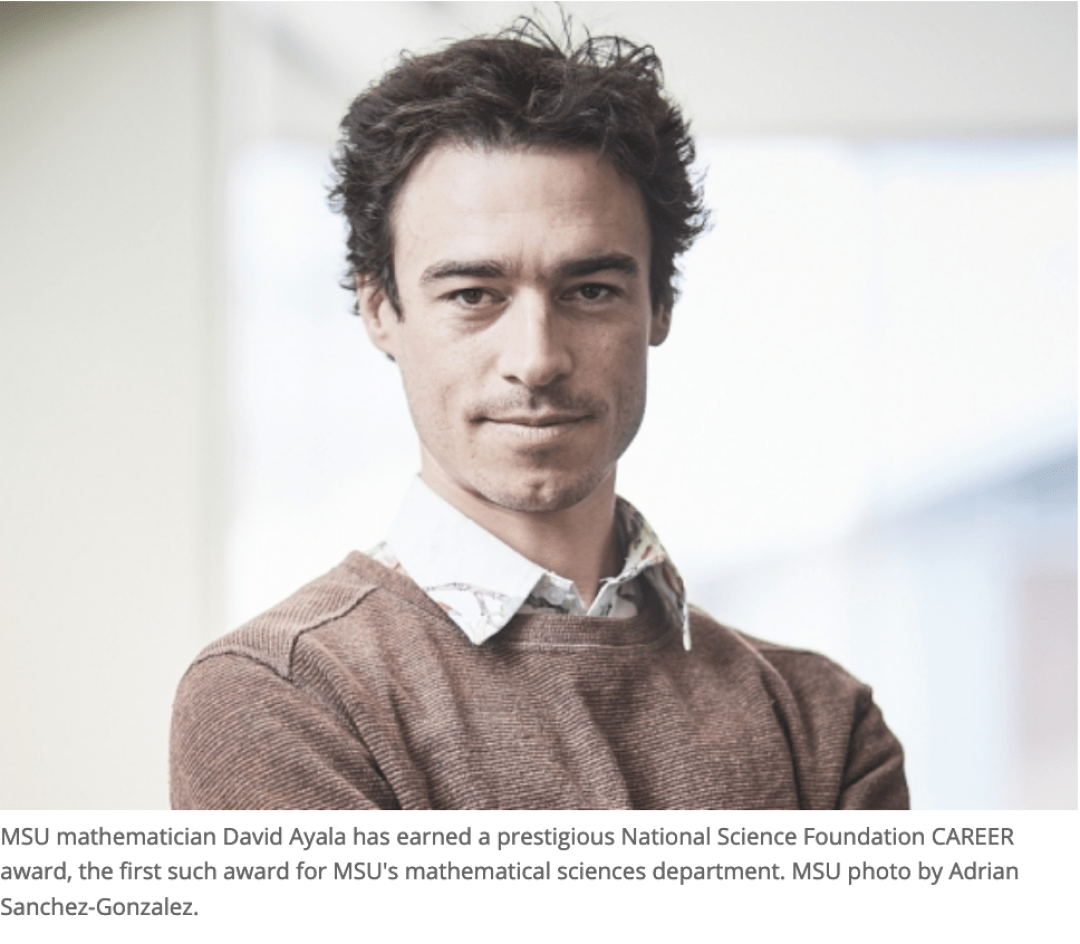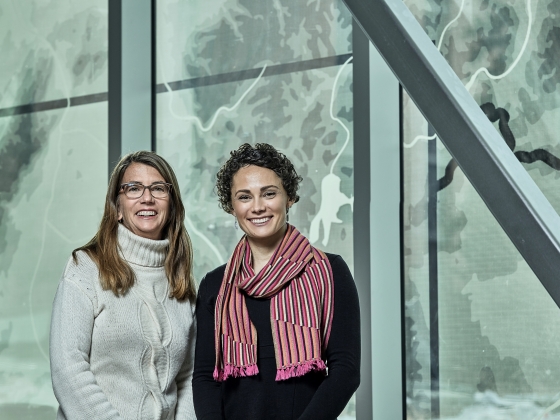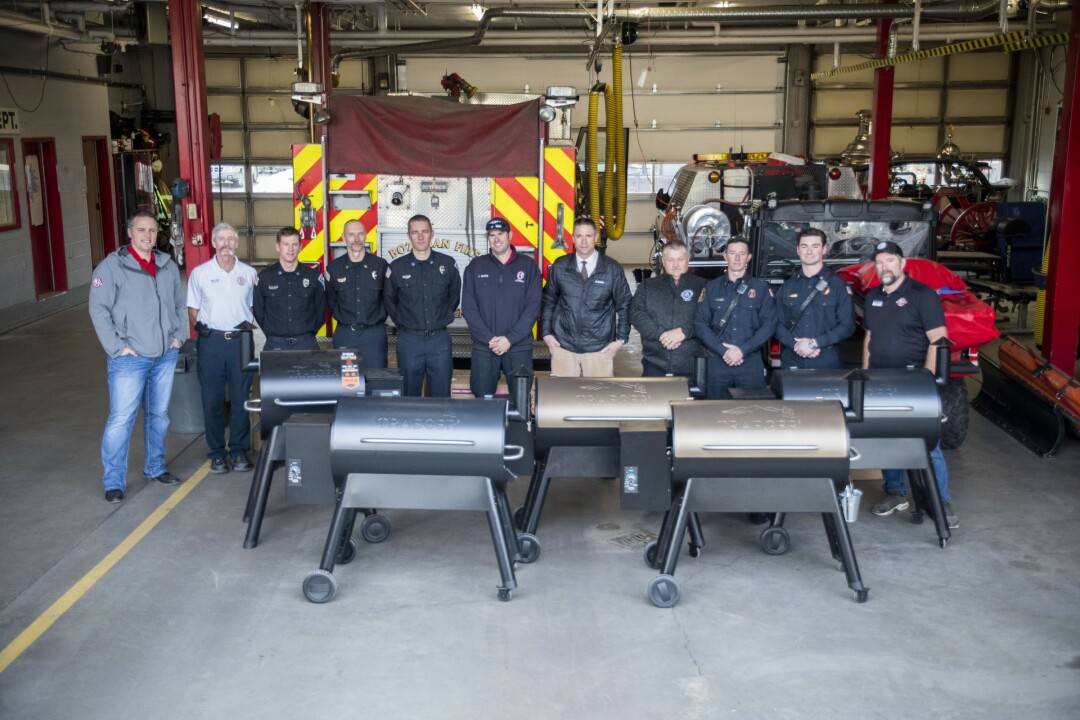In the course of a semester, Montana State University research services librarian Mary Anne Hansen will work on myriad projects, including providing library instruction for dozens of courses, conducting individual and small-group research consultations, assisting students and faculty on literature reviews and more. She leads MSU’s Tribal College Librarians Institute, assists other library staff with on-call chat and email research assistance and works on special projects, such as the library’s popular Paws to De-Stress program, where therapy dogs visit the library before and during finals week each semester to interact with students.
“I love being a research librarian because I love helping people and teaching them how to become better researchers in their disciplines, as well as understand the information infrastructure, from Google Scholar to meta-search tools to databases specific to their discipline,” Hansen said. “I love being challenged, and, most of all, I love the relationships I form with faculty and students.”

Hansen, herself, is loved, too. She was recently named one of only 10 winners nationwide of this year’s I Love My Librarian Award from the American Library Association. The prestigious honor recognizes librarians for leadership in the profession and for their commitment to transforming lives. The ALA selects the winners from public nominations that showcase the lasting contributions of dynamic librarians working in public, school, college, community college and university libraries. This year, library users nationwide submitted nearly 2,000 nominations.
“It’s difficult to put into words how honored I am at receiving this award,” Hansen said. “I’m so grateful to all of the wonderful mentors and champions who have guided me along the way in my 20-plus years as a librarian.”
Hansen, who in addition to her work at MSU’s Library serves as president of the Montana Library Association, has a long association with MSU and its library.
Hansen is a Bozeman native, and both of her parents attended MSU. Her dad, a decorated World War II veteran, graduated in 1948, and her mother took courses at MSU to become a school librarian after earning a degree from the University of Montana.
Hansen also attended MSU and worked in the library during her undergraduate years. She graduated with a bachelor’s degree in modern languages in 1985 and then earned a master’s in adult and higher education in 1993. In addition to herself and her parents, more than 20 others in Hansen’s extended family have attended or graduated from MSU, she said.
Hansen began working as a staff member at MSU in 1987 and then, after earning a master’s degree in library science through an online program of the University of Arizona, became a faculty member in the MSU Library in 1996.
She calls the library an “incredible” place to work.
“I love working at MSU because it’s such a vibrant university with so many dedicated faculty and staff. Additionally, there is widespread understanding across campus that a well-supported and healthy library is essential infrastructure for MSU’s educational and research enterprise,” Hansen said. She added that the library provides a range of research and technology services to meet the needs of the MSU community, and it also works with partners across the state to advance research skills and education.
“I have a lot of great colleagues who are very service-oriented and student-centered,” Hansen said. “Whether in tech services or public services roles, everyone in the library deeply understands that we’re helping MSU accomplish its education mission.”
Hansen said that the highlight of her career has been her 22-year involvement with the Tribal College Librarians Institute, which provides free professional development opportunities for librarians serving indigenous college students.
Often, the tribal college library is the only library on a reservation, and it also fills the role of a public library, Hansen said. To ensure tribal college librarians can receive the training, Hansen has procured more than $800,000 in grants to help reduce travel expenses for librarians attending the institute. Over the 29-year history of the institute, more than 400 librarians and presenters have benefited from it; many attendees return multiple times and represent 25 states, four Canadian provinces and come from as far as New Zealand.
“I’ve formed deep and rewarding relationships with many of the tribal college librarians, and I’ve learned so much from them,” Hansen said.
In addition, Hansen is a leader in the library community, not only through her work with the Montana Library Association but also through her involvement with the American Indian Library Association, which has included working with the ALA to create an advocacy toolkit for rural, native and tribal libraries. And, she said it has been rewarding to serve as a Montana liaison to the regional medical library in Seattle, a relationship that has earned her health education outreach funding to train constituents across Montana, such as students at tribal colleges, K-12 science, technology, engineering and math educators, Montana librarians and others.
Kenning Arlitsch, dean of the MSU Library, said Hansen’s recognition is well-deserved.
“Mary Anne’s impact on the lives of students, colleagues, and public citizens is real and demonstrable,” Arlitsch said. “Whether she’s teaching students to critically consider information sources that shape their education, facilitating the professional development of her colleagues through (the Tribal College Librarians Institute) or delivering health information to the citizens of Montana, Mary Anne shows commitment and dedication in everything she does.”
Since the inception of the I Love My Librarian Award in 2008, the ALA has selected up to 10 librarians annually from a pool of hundreds of nominations. This year’s winners will each receive $5,000, a plaque and a travel stipend to attend the I Love My Librarian Award ceremony in Philadelphia on Jan. 25. The award is sponsored by the Carnegie Corporation of New York, the New York Public Library and The New York Times.
Over the last decade, library supporters have shared more than 19,000 nominations for the award. Information regarding previous award winners can be found at ilovelibraries.org/lovemylibrarian.







News Comments
Thank you
Open Auditions for Annie
Monday, Sep. 16, 2024
I’m at the Bozeman airport where your painting, “Blowing East” is displayed. It’s absolutely gorgeous! Bravo, Marci!!
The Artists’ Gallery in Bozeman’s Emerson Cultural Center May Exhibits
Sunday, Jun. 30, 2024
This is so typical of a sign in, which we should not have to do to check if we or some one in our party got a permit. I have been working or "creating an account" for 30 minutes and just get the same ...
Smith River permit drawing results available
Sunday, Mar. 10, 2024
I have struggled with this podcast and my own participation therein, the event itself obviously traumatic, but beyond that my inability to reach anyone and convey anything resembling truth. The person ...
Billings, MT Case Becomes True Crime Podcast | 'An Absurd Result'
Marktokarski
Saturday, Jan. 20, 2024